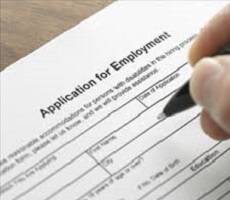July 18, 2016
The ethics of everyday working life come under the spotlight 0
 The ethics of everyday working life are the subject of two new surveys. A study from job site CV-Library, claims that over half of UK workers believe their workplaces have become ‘more strict’ in recent years over issues such as health and safety and personal behaviour, attitudes and appearance. There are some exception to this, according to the survey, as employers become more tolerant of behaviour such as the wearing of tattoos, relaxed dress codes and making personal calls. The second survey from online expenses management provider webexpenses claims that, contrary to popular belief, people working in sales and marketing are the least likely to lie at work while the most dishonest professions are human resources and IT. Four out of five people working in either HR or IT admit they have committed at least one deceitful deed at work, against while only 60 percent of those working in sales, media and marketing jobs admit to fibbing (unless they’re lying about that, obviously).
The ethics of everyday working life are the subject of two new surveys. A study from job site CV-Library, claims that over half of UK workers believe their workplaces have become ‘more strict’ in recent years over issues such as health and safety and personal behaviour, attitudes and appearance. There are some exception to this, according to the survey, as employers become more tolerant of behaviour such as the wearing of tattoos, relaxed dress codes and making personal calls. The second survey from online expenses management provider webexpenses claims that, contrary to popular belief, people working in sales and marketing are the least likely to lie at work while the most dishonest professions are human resources and IT. Four out of five people working in either HR or IT admit they have committed at least one deceitful deed at work, against while only 60 percent of those working in sales, media and marketing jobs admit to fibbing (unless they’re lying about that, obviously).










 The overwhelming majority of UK employees (81 percent) are working beyond their contracted hours, claims a report from recruitment firm
The overwhelming majority of UK employees (81 percent) are working beyond their contracted hours, claims a report from recruitment firm 
























July 11, 2016
Multi-tasking and workplace distractions don’t allow us to focus on the essentials
by Charles Marks • Comment, Knowledge, Workplace, Workplace design
Although the structure of our brains is largely the same as that of our hunter-gatherer prehistoric ancestors, that does not mean they are immutable. Research shows that the way our brains change in response to technology and the changing workplace suggests they are subject to a certain degree of ‘rewiring’. For example, a recent study found that the emotional response of adults to smileys in emails and texts is exactly the same as they would have to real faces. Tellingly, however, this appears to be learned behaviour because babies do not exhibit the same response. One other aspect of working life that is now proven to change the way our brains work – and not in a good way – is multitasking. Research published by Kep Kee Loh and Ryota Kanai of the University of Sussex found that “Individuals who engage in heavier media-multitasking are found to perform worse on cognitive control tasks and exhibit more socio-emotional difficulties”.
(more…)